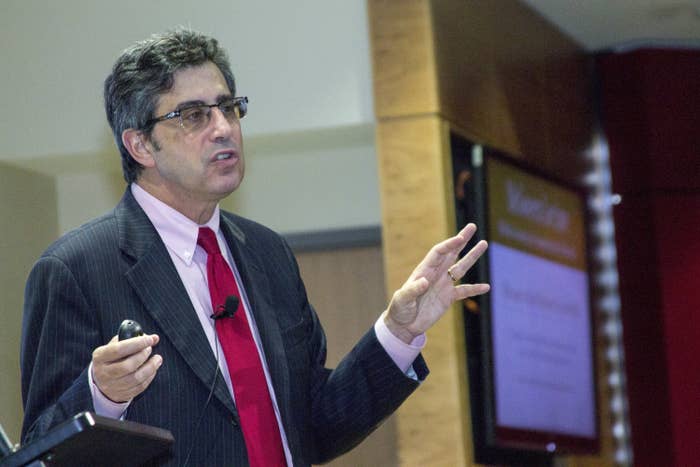
The editor-in-chief of the Journal of the American Medical Association will leave that position after the prestigious research periodical faced fierce blowback against a podcast and a tweet that questioned the existence of racism in medicine.
Howard Bauchner will step down as editor-in-chief of JAMA and its extended network of journals at the end of June after a decade at the helm, its parent organization, the American Medical Association, announced Tuesday.
Bauchner had been on administrative leave for more than two months while an independent committee conducted an investigation into the production of the podcast, in which another top journal editor, Edward Livingston, dismissed the notion that there was systemic racism in medicine. “Personally, I think taking ‘racism’ out of the conversation would help,” Livingston said on the Feb. 23 episode. “Many people like myself are offended by the implication that we are somehow racist.” He left JAMA the following month.

The committee is also reviewing how the journal came to promote the podcast with a tweet from its official account, stating in part: “No physician is racist, so how can there be structural racism in health care?”
The episode and the tweet sparked furious backlash from the medical community. Many said the incident reflected how JAMA, one of the world’s most widely read research periodicals, had failed to acknowledge a vast body of evidence that systemic racism does exist in medicine, diversify its staff, and highlight work on racial disparities in health and medicine. A petition with more than 9,000 signatures asked for, among other changes, a review of Bauchner’s leadership. And some doctors and researchers said they would go so far as to boycott submitting and reviewing papers until JAMA made satisfactory changes.
In a press release from the AMA announcing his departure, Bauchner said he had played no direct part in the podcast, but expressed regret that it had seen the light of day.
“I remain profoundly disappointed in myself for the lapses that led to the publishing of the tweet and podcast,” he said in the statement. “Although I did not write or even see the tweet, or create the podcast, as editor-in-chief, I am ultimately responsible for them.” He also said he has “always supported the AMA’s commitment to dismantling structural racism in the institutions of American medicine, as evident by numerous publications in JAMA on this issue and related subjects.”
News of his departure was greeted by a mix of celebration and guarded optimism. Brittani James, a Chicago doctor who co-organized the JAMA petition, said on Twitter that she saw the move as a “small victory” — but believed Bauchner’s remarks were “a non-apology from someone unwilling to take accountability to the bitter end.”
While we celebrate this small victory, we must keep in mind that the fight is far from over. One person is not solely responsible for the deep racism at @JAMA_current. The entire system is guilty.
Concerns about JAMA long predated the podcast. Raymond Givens, a cardiologist at Columbia University, had been concerned for months last year about what he saw as the lack of diversity among JAMA editors. He raised his criticisms in an email to Bauchner in October, but did not hear back.
“Back when he was placed on leave, it was clear he couldn’t come back from this,” Givens told BuzzFeed News on Tuesday. “But I think that for me, losing his position was never my intention. I just wanted to see some change at the journal and really throughout the medical literature — more diversity. So I see this not as the goal, but the opportunity to move closer to the goal.”
In a separate announcement about Bauchner’s departure in JAMA, executive editor Phil Fontanarosa praised Bauchner for his “diligence, perseverance, evidence-based approach, and keen instincts.” He noted that the outgoing editor had launched four new journals, pushed an online publishing cycle, and expanded JAMA’s audience. He also said Bauchner was “committed to diversity, equity, and inclusion,” demonstrated by having “published more than 650 articles on race and racial and ethnic disparities and inequities in the last 5 years” and “increased substantially the number of women, Asian, Black, and Hispanic members of the editorial boards and among decision-making editors” of JAMA journals.
The AMA — which operates separately from JAMA and recently released a three-year plan to advance health equity — is forming a search committee that will oversee the appointment of a new editor-in-chief. Leading the group will be Otis Brawley, an oncologist and epidemiologist at Johns Hopkins University, according to the AMA. Fontanarosa will serve as interim editor-in-chief until a new editor is appointed.
Givens isn’t sure yet, however, whether these changes would make him once again feel comfortable submitting to JAMA.
“I don’t yet know what it means in terms of changing the culture of the journal,” he said, “and so I think I would like to see that first before making any hard decisions.”
